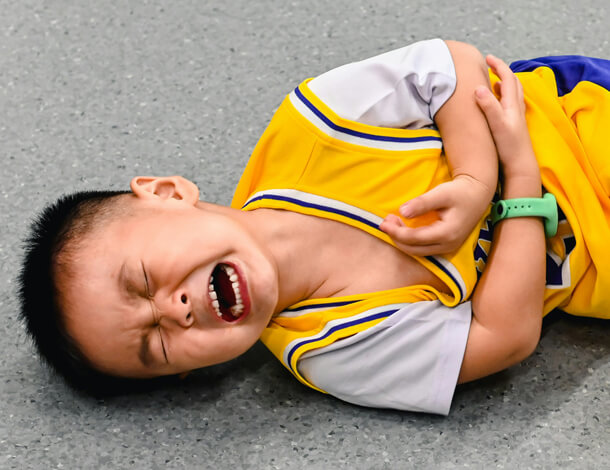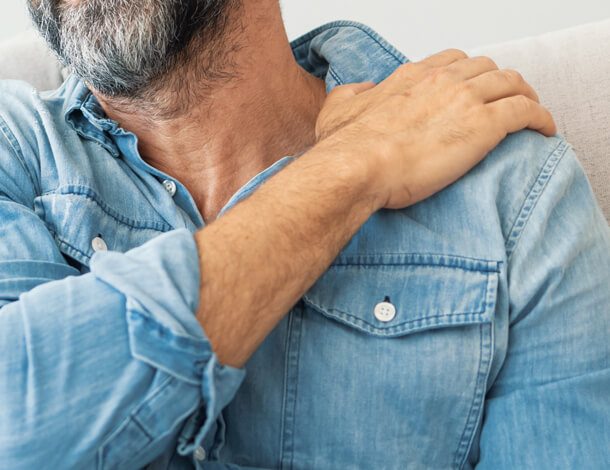Summertime Injury Safety Tips
During the warm weather months people enjoy spending their time outdoors. Whether working in the yard and the garden, or just celebrating the summer with family and friends, remember these tips to prevent an unnecessary trip to the doctor’s office or the emergency room due to a hand, wrist, elbow or shoulder injury.
Tips for Lawnmower Safety
According to the American Society for Surgery of the Hand, each year more than 74,000 small children, adolescents, and adults are injured due to improper handling of lawnmowers. Protect your hands and stay safe mowing your grass.
- Do not wear rings, loose jewelry, or bracelets that may catch on a lawnmower.
- Do not remove safety devices, shields, or guards.
- Never insert hands or feet into a lawnmower to remove grass or sticks. Turn equipment off in order to inspect, clean, or to perform repairs.
- Never allow a child to operate a lawnmower or be anywhere near a mowing area.
- Never allow passengers on riding mowers
- For a more detailed article on lawn mower safety, please visit our dedicated to lawn mower safety.
Tips for Safe Yard Work
Yard work can be a great way to enjoy the outdoors. Avoid dangerous situations and unnecessary accidents while working in the yard.
- Keep young children away from the work area at all times.
- Ensure that hand-powered equipment such as saws, weed cutting devices, and hedge trimmers are in good repair and safe to operate. Never leave lawn equipment lying in the yard unattended.
- Keep hands away from moving blades on equipment.
- Always wear protective gloves and eye protection when operating lawn equipment.
- When performing tasks that require a ladder, be sure the ladder is strongly secured. Make sure a family member or friend is within visible distance in case of a fall.
Tips for A Healthy Gardener
While the results of gardening are very rewarding, improper technique can cause minor aches and pains as well as long-term complications with the hands, wrist, elbow, and shoulder. Be a healthy gardener.
- Work below shoulder level whenever possible. If not, perform the task for five minutes or less, then take a break or perform another activity before continuing.
- Keep the elbows partially bent while gardening, especially when doing resistive activities requiring elbow strength. Work with the forearms in a neutral position (i.e. thumbs up) whenever possible.
- Work with the wrists in a neutral position by avoiding the extremes of motion (up, down, and sideways) especially when working against resistance.
- Hold objects with a light grasp or pinch, avoiding a tight, sustained grip.
- Use well-designed garden gloves and tools.
Tips for Fireworks Safety
Fireworks can be a fun addition to summer celebrations. They can also cause severe injury and even death. Prevent unnecessary fireworks disasters.
- Understand the difference between legal fireworks and illegal explosives before buying.
- Explosives can cause serious injury or death. Always purchase fireworks from a reliable source.
- Never try to construct homemade fireworks. They can cause serious injury or death.
- Never allow children to play with fireworks. Fireworks should always be used under the close supervision of an adult.
- When igniting fireworks, be sure people are completely out of the way. Keep a large bucket of water and a garden hose nearby in case of fire.
- Never re-light fireworks that have malfunctioned.
Tips for Water Sports Safety
Fishing, boating, and skiing are popular summer activities. Avoid accidents and mishaps by using common sense and caution when you’re out enjoying the water.
- Be sure that someone in your group is trained in basic first aid and CPR.
- Keep fishing knife blades covered when not using them.
- Use caution when baiting fishhooks and removing them from fish. Fishing hooks are very sharp and can easily become embedded in the fingers.
- Boating injuries involving propellers can cause major trauma injuries to the hand and wrist, as well as the head, neck, abdomen, and lower limbs. Never go near a boat propeller when the engine is on. Be aware that when the engine has been turned off after operation, the propellers are still moving for a period of time and can cause severe injury.
- Never consume alcohol while boating.
- When pulling skiers, be cautious not to accelerate erratically or too quickly as this can cause serious upper extremity injuries.
Tips for Outdoor Sports
Whether you’re a competitive athlete or just working out to stay in shape, outdoor sports activities are a great way to have fun and feel energized. But, they also carry the risk of injury. We believe that an ounce of prevention can save you a trip to the doctor or emergency room.
- Prepare yourself for any type of sports activity by first warming up.
- Engage in 5-10 minutes of light exercise (such as walking, jogging, or cycling) prior to any sports activity to increase the body’s temperature and gradually elevate the heart rate.
- Stretch all major muscle groups to be used in the activity.
- Wear proper gear and equipment for your particular sport (such as pads, gloves, helmets, etc.) and ensure they fit properly.
- Cool down after sports activity to let the body recover and the heart rate decrease gradually.
- Stretching should be included.
Tips for Safe Camping and Hiking
Camping trips and a day hiking in the woods can be great fun, but they can also pose risks. Be prepared before you take to the wilderness.
- Be sure someone in your group is trained in basic first aid and CPR.
- Always carry a basic first aid kit when camping or hiking that contains the following:
- Various types of bandages
- Sterile gauze pads
- Wound dressings
- Scissors and tweezers
- Adhesive tape
- Band-Aids
- Non-latex gloves
- Alcohol pads
- Topical antibiotic cream
- Oral antihistamine (such as Benadryl)
- Medications for pain or fever, such as acetominophin or ibuprofen
- Hydrocortisone cream
- Take a pair of outdoor work gloves on your trip to protect your hands.
- Wear long sleeves to protect your arms from poisonous plants, insects, and animal bites.
- Never touch animals or unknown plants.
- Be aware that snakes are commonly found in the woods. If you spot one, do not go near it.
When to Seek Emergency Care
- You have a severe hand or arm injury caused by contact sports, falling, or other trauma.
- You cut your hand, wrist, elbow, or shoulder and cannot stop the bleeding by applying direct pressure.
- You have an accident involving a lawnmower or other equipment involving blades.
- You sever a finger or other part of the hand, wrist, elbow, or shoulder.
- You injure your hand or arm in a fireworks accident.
For all emergencies, CALL 911 immediately.



